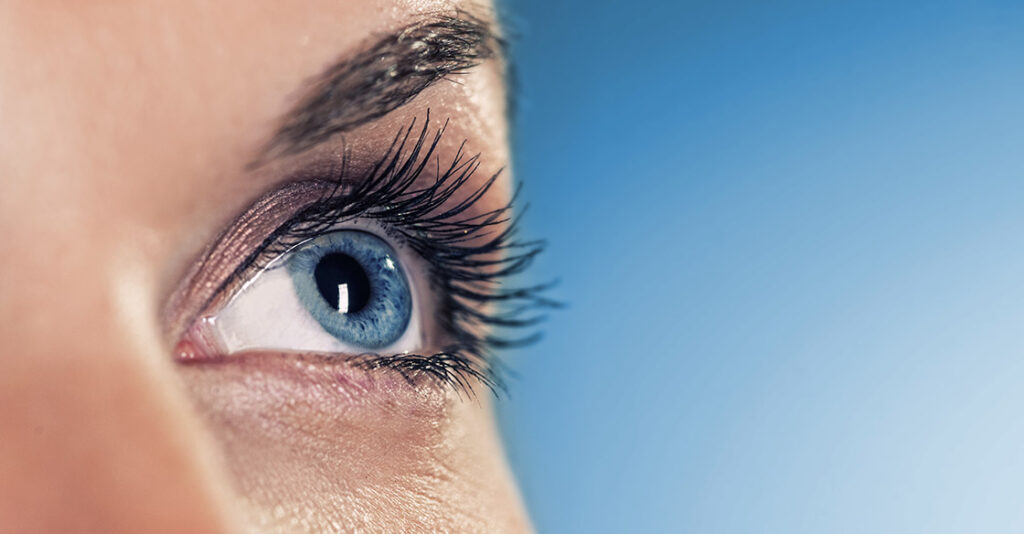6 Myopia Treatment Options That Will Improve Your Vision

Myopia, also known as nearsightedness is a refractive error which causes vision to blur when attempting to focus on far away objects. Myopia occurs when the shape of the eyeball is too long, or the cornea is too curved, affecting the focus of the lens and cornea of the eye. This, in turn, causes light rays to focus in front of the retina, rather than directly on the surface. There are multiple myopia treatment options available that could help to improve nearsightedness vision.
Glasses
Glasses can provide a quick and effective solution in correcting myopia. Eyeglasses change the angle that light hits the retina which corrects the refractive error while the glasses are worn. This treatment option is ideal for children as glasses are easy to take care of. The lenses get prescribed after the patient has undergone a diagnostic eye assessment.
Contact Lenses
The same type of vision tests for eyeglasses happens to produce an appropriate prescription for contact lenses. Contact lenses also work the same way as glasses, by altering the direction that the light enters the eye. Thanks to the natural lubrication of the eye, the lenses float comfortably on the cornea. They are also a lot thinner than glasses as they sit much closer to the cornea.
There are two types of daily contact lenses available:
- Soft lenses form easily to the shape of the eye, and they are soft, flexible plastic material. Soft lenses cover the pupil, iris, and part of the white of the eye. Some soft lenses need disposal after just one day of use, while others last a few weeks.
- Rigid lenses are smaller than soft lenses and cover the pupil and the iris. Rigid contact lenses get made of rigid plastic that is thin. You will need to remove most rigid lenses need at night. However, extended-wear rigid lenses do exist, and these can be worn both during the day and when asleep.
Implantable Contacts
This type of lens requires surgery to place inside the eye. The eye surgeon will use an intraocular lens to correct the vision. Aphakic IOL (intraocular lens) is soft and tiny lens fitted in the eye between the iris and the eye’s natural lens. The lens can also be installed between the cornea and the iris and is known as an ICL (implantable contact lens). These lenses can be removed at any time by an Ophthalmic surgeon if required.

Overnight Contacts
Orthokeratology (Ortho-k) contact lenses are special fit lenses that can reshape the cornea of the eye which corrects mild to moderate myopia temporarily. Ortho-k lenses are different to most lenses in that they are worn only at night, and once removed the vision enhancing benefits (in the form of the corrected cornea shape) maintains throughout the entire day. It is essential for the lenses to be worn each night to provide continuous corrected daytime vision. Ortho-k has been shown to reduce the extent of myopia long-term when compared to glasses and other lenses— even with the discontinued use of the Ortho-k lenses.
KAMRA Inlay
The KAMRA Inlay is a mini ring-shaped contact lens with an opening in the center. It sits on the cornea, and the small opening in the middle (known as a pinhole) allows only light that focuses on entering your eye. The lens is intended for one eye only so that between the two, constant nearsighted and farsighted vision is available at all times.
Corrective Eye Surgery
While glasses and contact lenses can provide relief when worn, and in the case with Ortho-k relief for the day, neither options provide a long-term permanent solution. The only permanent treatment option for myopia is refractive surgery. Options include:
- Custom LASIK surgery (laser-assisted in-situ keratomileusis) is an eye surgery that corrects myopia and other refractive errors. The operation involves cutting a flap from the front of the cornea to alter its shape which adjusts the way in which the light hits the retina.
- Photorefractive keratectomy (PRK) is less invasive but makes the same correction to the same part of the eye as LASIK, but does so directly on the eye surface.
Inland Eye Specialists provides a range of vision testing and eye care treatment options. Contact us to book in consultation with an expert vision specialist, and to discover how we can help in the maintenance of your eye health.
